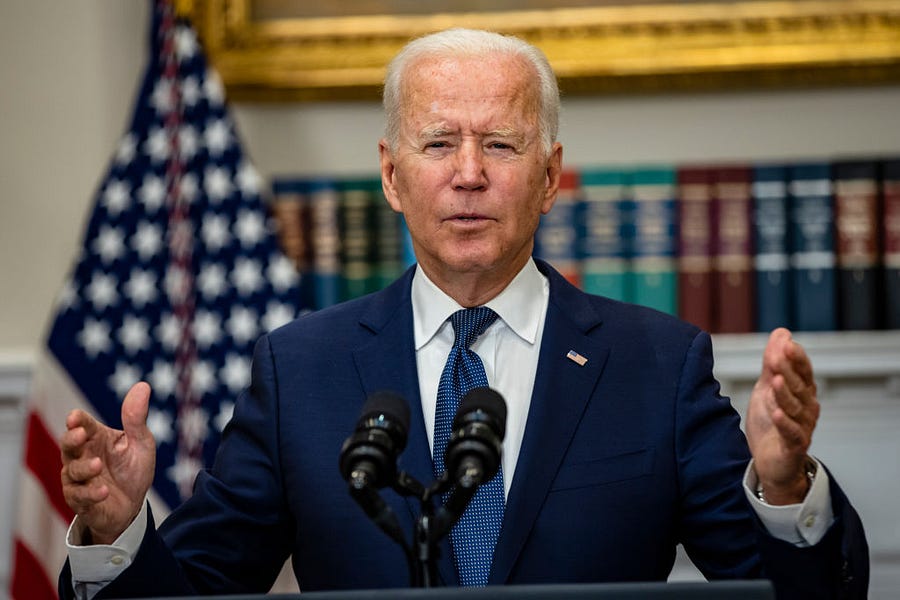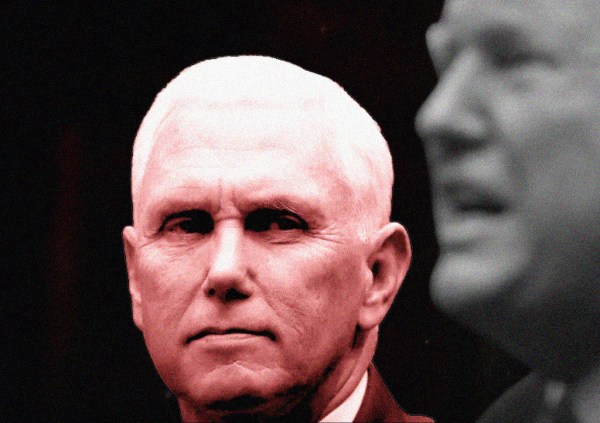After many months of deep anxiety, Republicans are starting to feel pretty good again. The economy is slowing, deficit spending is driving up inflation, anxiety about the Delta variant of COVID-19 is upending hopes for an autumn return to normalcy, and the withdrawal from Afghanistan is a shambolic mess. Nothing like being the party out of power to make one happy to hear bad news.
And Republicans are all the way out of power. They are not in charge of even one house of one branch, and as they have illustrated with a refusal to vote for debt-ceiling lift for spending they themselves authorized, the congressional GOP is embracing the upside of powerlessness in our era of brain-dead partisanship: consequence-free complaining. Democrats must secretly envy their counterparts. Dems’ time out of power was unusually short, and they didn’t get the chance to really get in the groove of constantly carping without feeling obliged to offer plausible solutions. In America today, we have two minority parties, one of which is occasionally forced to try to govern against its members’ will.
But what truly, truly pleases Republicans is the fact that President Biden’s bubble has burst—or is at least deflating. After a half year in which Biden was mostly able to avoid controversy, he finds himself with lots of drama. An August recess that was supposed to be illuminated by the campfire glow from a bipartisan infrastructure bill has turned into the month that will be remembered for the fall of Kabul and the return of the coronavirus mask.
On August 16, Biden for the first time in his presidency dipped below the 50 percent line in the FiveThirtyEight average of polls—driven in part by concerns about resurgent coronavirus. A president with 55 percent approval, as Biden had back in May, might disrupt the great conveyor belt of midterm victories for parties out of power winning House seats in a president’s first term. Only four presidents in 200 years have beaten the curse, but you’d have to take a guy with job approval solidly better than 50 percent and with a string of good news seriously as a chance to be the fifth.
But now, the news is not good and Biden’s number is under the waterline, even if only by a half point or so. At the beginning of the summer, Biden was at the low end of high-popularity presidents: first-term George W. Bush, second-term Bill Clinton, etc. Now as summer draws to a close, he’s hanging out at the high end of middling popularity, like Barack Obama and Gerald Ford. Those are guys who can and did take serious midterm wallopings. But Republicans will need only a handful of seats to win back the House.
The Senate, as we have discussed before, is less chained to the midterm curse, but at 50-50, Republicans just need to net out one seat to win. Even if they give up a seat or two—Ohio and Pennsylvania come to mind—Republicans have what should be an easy win over incumbent Sen. Raphael Warnock in Georgia and chances to press Democrats elsewhere, especially if New Hampshire Gov. Chris Sununu decides to try to follow his big brother’s footsteps into the Senate. Just like your plans for a railroad-tie terraced garden/beach body/basement organization, things don’t look nearly as positive for Democrats in August as they did in May.
As the great Harry Enten points out, the spring-summer shift is reflected in the outcomes of special elections in the Biden era. In the 17 special elections from January through mid-April, Republican candidates outperformed Trump’s 2020 showing in their districts by just 1 point. In the 17 since then, the GOP candidates have done an average of 7 points better than Trump did last year. This is way worse than Democrats did in the Trump era, but still good enough to allow the normal cyclical forces to push the Democrats out of complete majority.
The worst news for Biden, though, may be that in even those corners where former President Donald Trump is seen as a world-historic figure—for good or for ill—the spell seems to be breaking. An Alabama crowd so receptive that it didn’t seem to flinch when Trump praised the Taliban as “great negotiators, tough fighters” booed him for encouraging Americans to get vaccinated against coronavirus. Of course, the crowd was already angry that Trump’s pick for Alabama’s Senate primary, Rep. Mo Brooks, said they should stop focusing on the last election and get ready for the next one.
Here were Trump and one of his loyal acolytes encouraging their supporters to be rational actors—get vaccinated, stop being sore losers—and the folks didn’t like it. The same went for Trump’s effort to get Texas primary voters to take the “safe” choice in a recent special House primary. This is Trump trying to go straight—a little—and finding his voters not wanting to follow him. He is discovering that there is no market in the political mainstream or the nationalist right for a less-destructive version of Trump. He has always been more of a mascot than a quarterback inside his own team, and now it’s showing. That’s bad news for Biden. The threat of a Trump restoration is the best thing Biden has going for him. Not only does it keep Republicans a shivering pile of protoplasm, but it keeps the radical left in check. The bad orange man is the shared enemy and credible threat to the progressives that Biden needs to limit the reach of the kooks in his party.
What Republicans have to be clear-eyed about, though, is why Biden is in trouble. Too many Democrats believed that broad disgust with Trump equated to support for Democrats. Same for the Republicans who made the mistake about opposition to Obama and Obamacare. If you want to enjoy the upside of running as the out party—unlimited complaining without pressure for results—you’ve got to take the downside too. When voters are trying to send a message, you’re just the stationery.








Please note that we at The Dispatch hold ourselves, our work, and our commenters to a higher standard than other places on the internet. We welcome comments that foster genuine debate or discussion—including comments critical of us or our work—but responses that include ad hominem attacks on fellow Dispatch members or are intended to stoke fear and anger may be moderated.
With your membership, you only have the ability to comment on The Morning Dispatch articles. Consider upgrading to join the conversation everywhere.